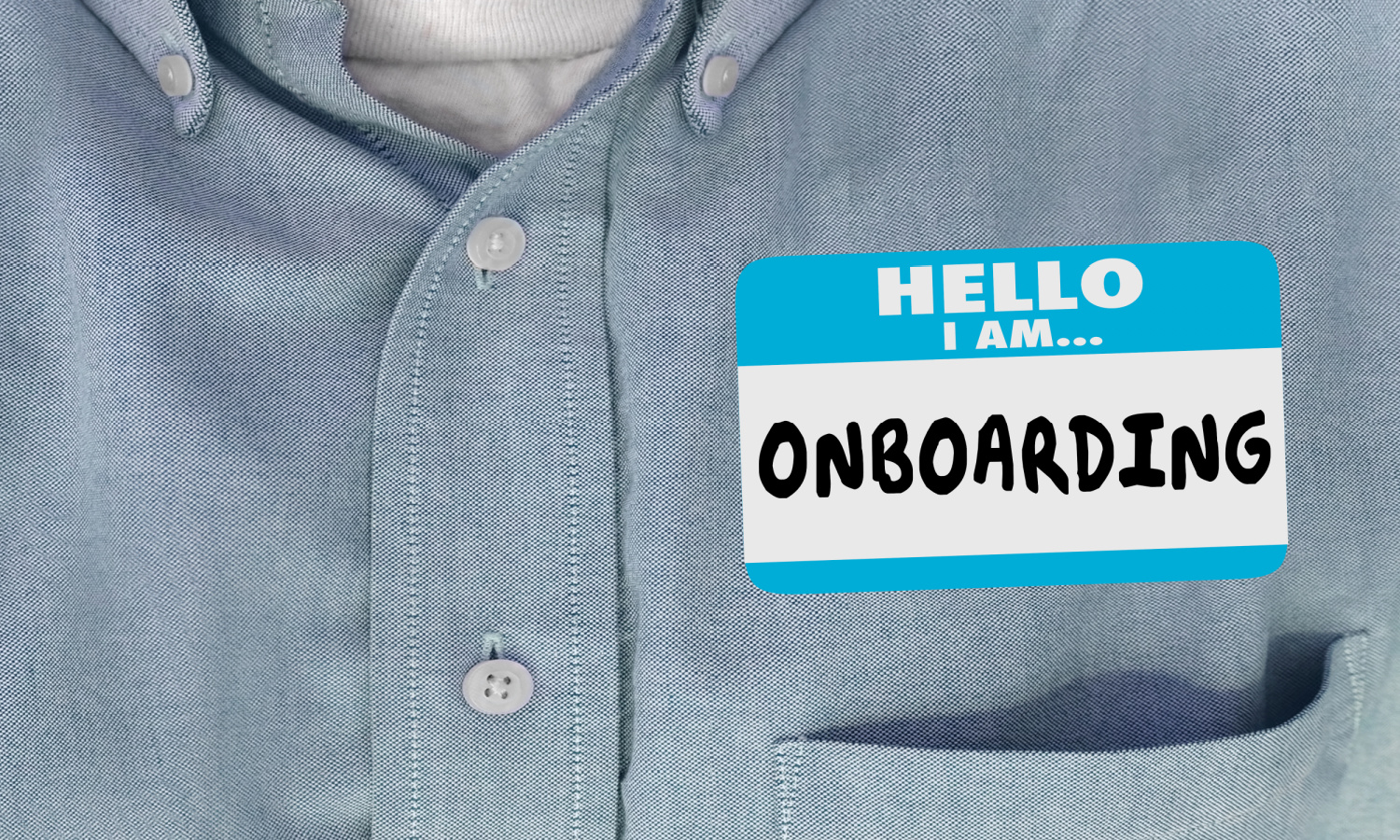
Starting a new job is exciting and fun but can also be overwhelming and intimidating. New faces, processes, and management styles take the fear of the unknown to another level for new hires. First impressions can help or harm a new employee’s first 90 days, but far too many companies put little effort into the employee onboarding process – about 88%, according to a Gallup poll.
Hiring great people is the first step. Keeping them is the challenge – and a robust employee onboarding can improve employee retention by 82%. On the contrary, a negative onboarding experience makes new hires two times more likely to search for other job opportunities.
Whether starting from scratch with your onboarding process or improving on existing programs, investing a bit more time, effort, and resources into your onboarding program will pay back big time for your company.
When you hear the word onboarding, what comes to mind?
Some companies are stuck in an analog onboarding world: a "welcome" banner, intro from a senior leader, company swag and snacks, and a few handshakes used to be the norm to get new employees started on their first day. As the workforce gets younger and more tech-friendly, onboarding has slowly shifted to a more engaging experience.
The first day of a job is special. You feel excited yet overwhelmed, nervous yet happy. For many, the first day is a roller coaster of emotions. And a good onboarding experience can help you soothe those emotions in a productive manner.
A strong onboarding experience is highly important for new employees to feel welcomed into the company, invested in their role, and gain momentum for the work ahead. In fact, it is considered the second most important HR practice after the process of recruitment.
A good onboarding experience is critical as it familiarizes employees with their specified roles, the organization’s values and philosophies, and what it offers to the employees. Moreover, an efficient onboarding program engages employees and increases their efficiency.
A creative and engaging onboarding program offers various benefits, not only for the employees but also for the company. Some of the top outcomes that come out of a great onboarding experience include:
Structured onboarding that includes consideration of new employees' learning style preferences and environments makes a difference far beyond the first few days:
Although essential, onboarding can be monotonous and dull. Integrating conventional onboarding strategies with modern technology and digital tools can enhance the impact of the whole onboarding program. Here are some of the most influential and top ideas when it comes to innovative onboarding techniques:
A big part of onboarding is equipment training. You want your new employees to learn how to handle and use all the appropriate equipment to be more productive. However, hands-on learning can compromise their safety, affecting the whole onboarding procedure.
AR can help you with that as it is a safe experiential learning method that overlays digital elements to a real-world perspective. This method makes equipment training more straightforward and effective and boosts the engagement of new employees.
Bring out the competitive nature of your new employees and help them build camaraderie by adding gamification to onboarding materials. One application is to award points for completing lessons in a virtual learning environment and upping the ante with a leaderboard and prize for the first one who completes the assignments. In-person onboarding can benefit from asking employees to team up for trivia based on new information during onboarding. Gamification can be digital or in-person and can break up the monotony.
It’s crucial to onboard your new employees as individuals, not just a warm body to fill a role. Ask your new hires to fill out a profile with interesting facts about them: favorite foods, vacation spots, hobbies, or family life. Allow them to write as little or as much as they’d like (and, of course, let them know it’s optional). If your company has an intranet or other internal communications tools, send a note to the company with new employee pictures and names and encourage your team to say hello. You can also integrate personal preferences – personal greetings or preferences for learning styles – into microlearning sessions to emphasize what they learned during their initial session and prevent learning loss.
Welcoming new hires into your business is critical in how they perceive you as an employer and can be the deciding factor of their loyalty and productivity toward your organization. The success of your business depends upon your employees, and it all starts with your onboarding strategy.
Want a deep dive into onboarding? Learn how Tiffany & Co refreshed their onboarding to help high caliber recruits become an extension of the luxury brand.
These Stories on Industry Insights
When someone asks me what my favorite season is, it’s an easy answer: football season. Aside from just being a sports fan in general, I love the competitive energy, the team spirit, and the ...
Copyright © 2025 Ardent Learning Inc. All Rights Reserved.